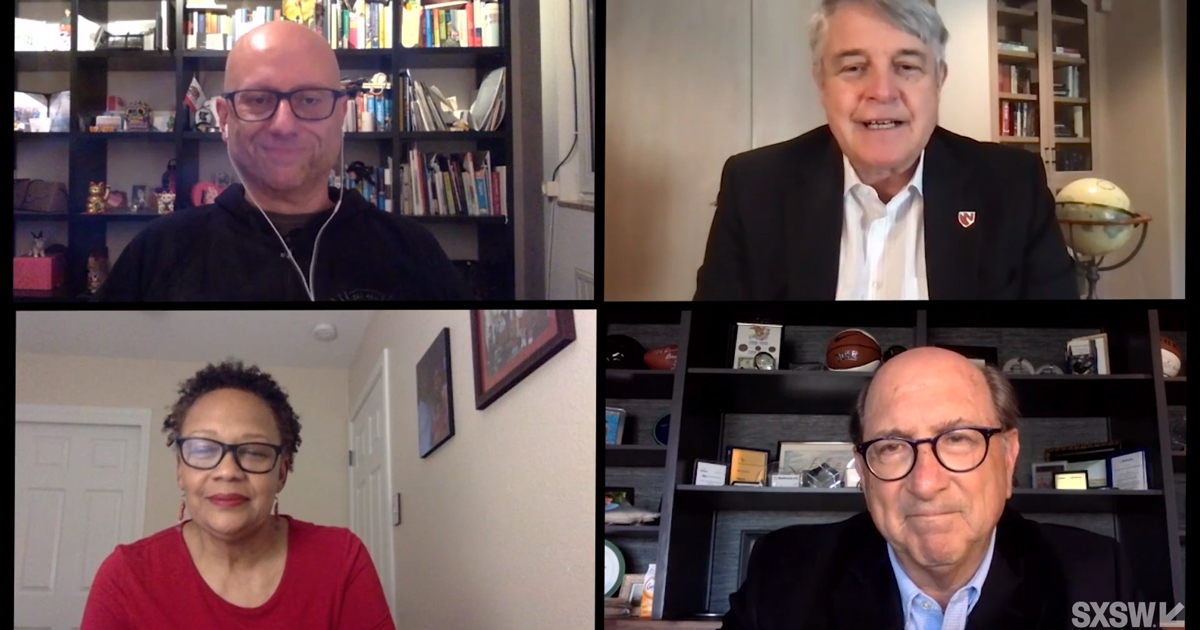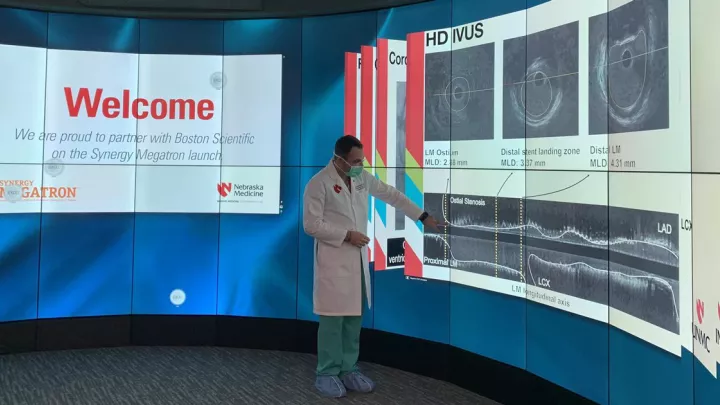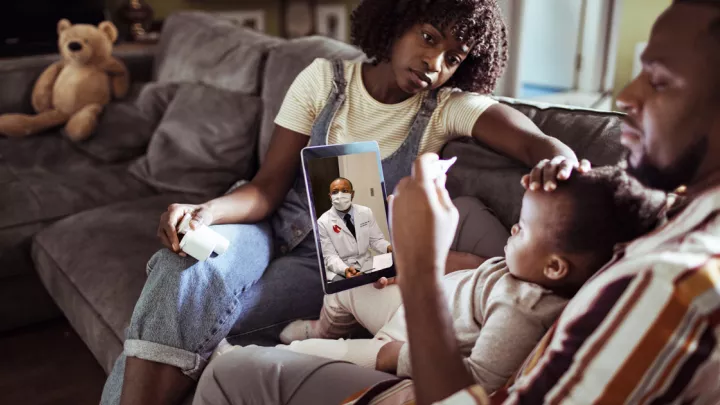CEO Dr. James Linder shares insights at SXSW festival

Nebraska Medicine CEO James Linder, MD, had the opportunity to share his insights about the future of health care on the national stage at South by Southwest (SXSW). The annual SXSW festival, which brings together speakers, film screenings and music showcases, went completely online this year.
Along with Frank Leyhausen from MedCom International and William Hawkins of EW Healthcare Partners, Dr. Linder spoke on the topic of Reimagining Care: The Intersection of Tech & Touch. Kim Bond Evans from Seremedi moderated their discussion.
While the entire talk is limited to attendees of SXSW, read on to get the highlights. Dr. Linder shared about internet access, giving care to remote areas and the future of health care.
Internet access as a right
"As a society, we have to adopt the philosophy that access to the internet is a right, in the same category as clean water," Dr. Linder says. "So much of our world revolves around digital communications, so we have to make sure that access is available to every community."
"In a state like Nebraska, that last mile problem has been challenging. But I look forward to the next couple years with more satellite communication."
Adapting to the pandemic with technology
Dr. Linder shares that a big part of getting people on board with new technology is a seamless, helpful design. "Thinking about the gamut of users – from the very young to the very old – a lot of work has to go into the user interface and the user experience," Dr. Linder says. "If you have great technology, but an obtuse black hole that you don't know how to interact with, people get frustrated. Both the patients and caregivers want things that are seamless and intuitive to make it a great experience for everyone."
"Like many systems, we saw a great bump in the use of telehealth with the pandemic. We went from 1% of visits as telehealth to over 40% in some areas. It's caused us to rethink the office environment for providers. It's put more emphasis on our patient access and scheduling systems. We've been embracing the concept of a digital front door for a couple years now, and it's accelerated the use of the Nebraska Medicine app by at least a year."
Will telehealth continue?
Now that telehealth has proven its worth, Dr. Linder hopes it's here to stay, saying, "People ask why we didn't do this before. The dirty secret is that people would not pay for it. What's happened is there have been waivers that allow reimbursement for telehealth services. We hope that people realize the value and efficiency of that so it can stay part of both the public and insurance reimbursement that exist today."
Extending care to remote areas
With telehealth, our providers can help people in remote areas without the need for travel. That's been helpful for rural Nebraska, where there's limited access to dermatologists, for instance. Dr. Linder explains, "One of the fascinating things that we've been exploring is digital dermatology. An image can be captured of a suspicious lesion. And one of our dermatologists can remotely look at the lesion and recommend the proper treatment." This asynchronous care approach has been helpful for patients and providers alike.
The future of health care
Precision medicine is coming. "The whole notion of precision medicine – once we have information about the genomics, proteomics, metabolomics of an individual, how does that relate to how we deliver care to them? How is their diet managed? What tests should they have? This is going to be an exciting time ahead of us," Dr. Linder says.
"I don't think it's an overstatement to say that technology has always been the most disruptive force in health care," he continues. "Think back a hundred years ago. In 1921, we just came out of a pandemic. At that time, there weren't aseptic procedures for hospitals, no antibiotics, no EKGs or medical devices, and there wasn't good pain management. But people still needed care. And they got it, but it was mostly supportive care."
"Now we're at this threshold of taking advantage of the tremendous technologies that are available to us: understanding the human genome, biology, incredible computing power, new pharmaceuticals. The rapidity of developing a COVID-19 vaccine is a testimony to that."
"So I think we're going to make great impacts on health in the next few years. The challenge is to make sure that we bring it forward in an equitable way and make sure everybody has access to it," Dr. Linder concludes.






